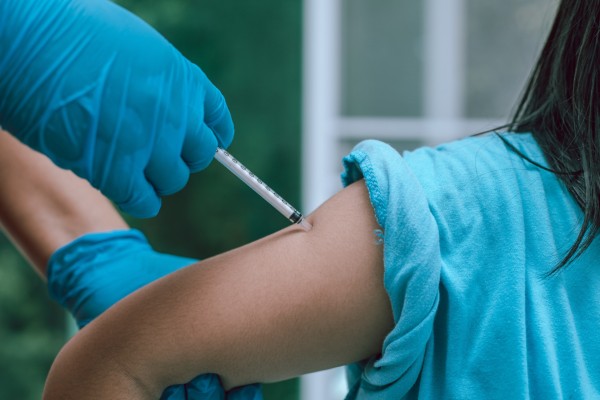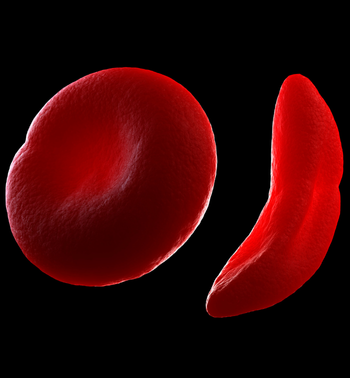Our CAP provides a patient-centred research programme with two integrated clinical trial research units, so patients from across the region have access to many of the latest treatments and developments.
Research teams across King’s Health Partners Haematology have demonstrated continued success in being the first to recruit to multiple competitive global trials, and leading recruitment to many national and international clinical trials. We also work closely with commercial partners to host national and international clinical trials as well as funded Investigator Initiated Trials.
Our haematology clinical trials and research studies are delivered by dedicated research teams in the following units:
- Haematology Research Unit at King’s College Hospital NHS Foundation Trust;
- Oncology and Haematology Clinical Trials Unit at the Cancer Centre at Guy’s and St Thomas’ NHS Foundation Trust.
We also have access to state-of-the art research facilities at
- NIHR King’s Clinical Research Facility at King’s College Hospital NHS Foundation Trust.
- NIHR Clinical Research Facility at Guy’s and St Thomas’ NHS Foundation Trust; the only Medicines and Healthcare products Regulatory Agency (MHRA) phase I accredited NHS-managed CRF in London.
- The Cell Therapy Unit within the NIHR King’s Clinical Research Facility.
- The Gene Therapy Vector Facility at King’s College London.
Please follow the links below for details of current trials across our specialisms:
We have secured funding through competitive open-call research bids from pharmaceutical, biotech, government and charity funding bodies to enable pre-clinical research and its translation, including first-in-human (phase 1) trials and later phase clinical trials.
Our research has been published in peer reviewed journals including New England Journal of Medicine, the Lancet, Nature, Journal of Clinical Oncology, Blood and many others, demonstrating the extensive and innovative research taking place across our CAP. We are making significant contributions to the ever-evolving body of knowledge and helping advance care and treatment options for our patients.
Examples of success include:
- King’s College Hospital NHS Foundation Trust and Guy’s and St Thomas’ NHS Foundation Trust have been awarded funding and are accredited IMPACT and TAP Centres; these are accelerated research platforms for the development and delivery of pioneering clinical trials in stem cell transplant (IMPACT) and blood cancers (TAP).
- We play an internationally leading role in the development of molecular monitoring techniques for acute myeloid leukaemia. This has led to the establishment of an international reference laboratory for patients treated in and outside clinical trials, opening the door to truly personalised therapy.
- Our myeloproliferative neoplasms service is an international centre of excellence and work here has led to the discovery of driver mutations and delivery of targeted therapies, which are now approved. We continue to provide global leadership of cutting edge commercial and academic trials. We have led the world literature for management of pregnancy and young patients with these conditions.
- The Cell and Gene Therapy at King’s College London produces the largest number of lentivirus and retrovirus (gene carriers) based vectors for regulatory approved clinical trials in Europe.
- King’s College Hospital NHS Foundation Trust’s Haematology department is one of the first accredited CAR-T centres in the UK offering commercial CAR-T products (a type of immunotherapy which involves collecting and using the patients' own immune cells to treat their condition) for cancer treatment, as well as several CAR-T trials for a range of haematological malignancies.
Read our latest news and learn more about upcoming events.
To get in touch with the Team and learn more about our work, please email KHPHaematology
The South East London Plasma Cell Disorders Registry
The South East London Plasma Cell Disorders Registry (SEL PCD Registry) is a research database collecting information on patients with a range of plasma cell disorders including
- Myeloma
- Monoclonal gammopathies
- AL amyloidosis
- POEMS syndrome
- Solitary plasmacytomas
- IgM neuropathy
The Registry is a collaborative project initiated by King’s Health Partners (King’s College Hospital and Guys and St Thomas’ Hospitals), and Lewisham and Greenwich NHS Trust. The information we gather is being made available for quality improvement audits and research studies.
The Registry collects routine clinical data from existing patient records, without any additional procedures or data collection exercises for patients. Data collected include:
Basic demographic details such as gender, age, and ethnicity: Relevant diagnostic details Information on all treatments administered, including chemotherapy, radiotherapy, stem cell transplant, and spinal surgery Response, progression, and toxicity details, to judge treatment effectiveness.
We are inviting all patients with plasma cell disorders under the care of one of the participating sites to enrol in the registry. The data that we collect on consenting patients is pseudonymised and stored securely. This means any direct identifiers (names, NHS numbers, addresses, etc) are removed to protect patient confidentiality. Registry governance
A Registry Oversight Committee meets twice yearly to review Registry activities. The Committee comprises the lead consultant from each participating site alongside patient representatives, Information Governance experts, and other interested parties. The Committee monitors data collection, reviews requests for data use, and oversees the publication of findings.
All requests for data to complete audits and research studies are tracked, reviewed, and approved by the Registry Oversight Committee. Audits are internal reviews of data conducted by NHS Trusts, and are therefore required to meet the initiating Trusts’ standards of data protection and scientific rigour.
Research studies are those that originate from within or without the Trust with the aim of publication, usually in a medical or scientific journal. These studies will inform the development of future care. All proposed research projects are required to demonstrate orientation towards patient benefit, ensure potential ethical issues have been thought through and mitigated, and must display statistical / scientific viability of expected outcomes.
All patient data supplied to researchers or for audits is fully anonymised to protect patient confidentiality. For more details or to enrol in the Registry, please contact kch-tr.







